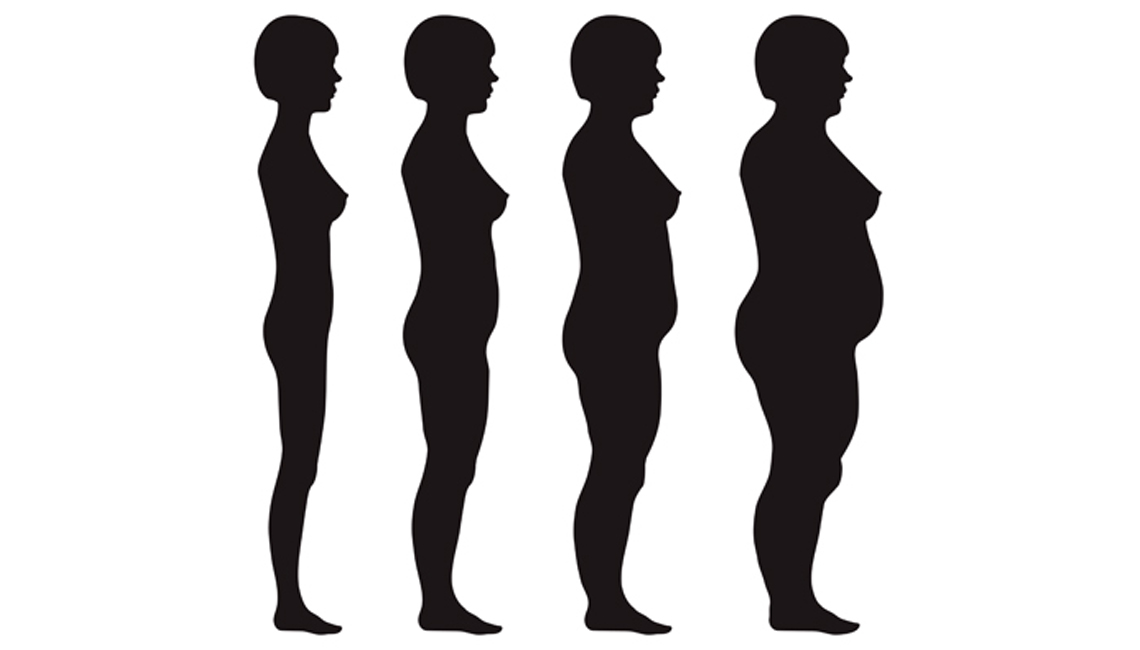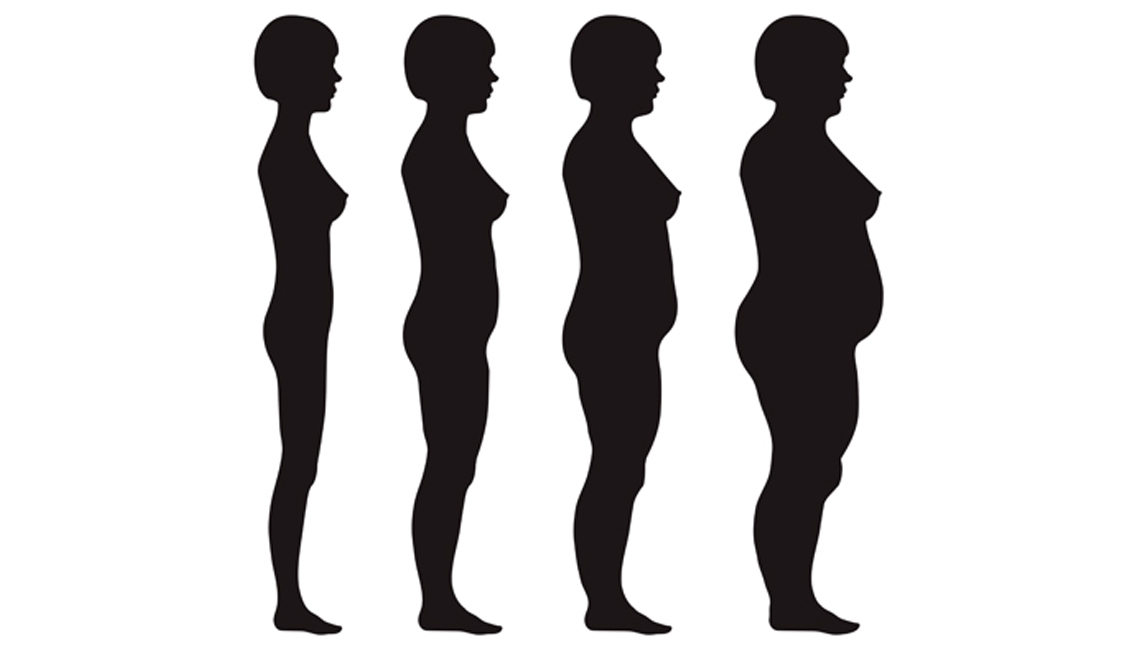Can the bacteria in your GI tract hold the key to successful weight loss?
By Janette Daher
THE SKINNY ON WEIGHT LOSS AND MICROBIOME
From yogurt to supplements, the prolific power of probiotics seems to be everywhere lately. But what is all this talk about the elusive microbiome? The microbiome may well be the best-kept bacterial secret to a healthy, happy body.
HEALTHY COHABITING
So what is the microbiome? It is the sum total of trillions of both good and bad bacteria that coexist in our gastrointestinal (GI) tract. The beneficial bacteria found in our GI tract are an important part of many body functions, including immune response, toxin removal, mineral absorption, vitamin production, inflammation reduction, and weight loss. However, gastrointestinal flora, or microbiota, is composed of both beneficial and bad bacteria that are in constant competition for food and space in your body.
In an ideal situation, the beneficial bacteria displace the bad bacteria that exist on the intestinal wall—and that’s a good thing for healthy digestion, good nutrition, and your optimal health.
But there are many challenges in today’s environment that make it easy for the bad bacteria to move in and take over, like a veritable coup of your digestive system.
The average American diet contains an overabundance of refined sugar, refined flour, pesticides, antibiotics, hormones, steroids, preservatives, and artificial colors and flavors cooked up in a lab to taste authentic without actually being so. And bad microbes? They thrive on these false food components like the villainous force they are. The situation that arises when the bad bacteria outnumber the beneficial bacteria is referred to as dysbiosis.
When the bad bacteria have the upper hand, they cause the intestinal lining to become more porous, like a screen door with a big hole in it, allowing toxins— such as bad bacteria, partially digested food particles, and waste products—to pass through, and which would not normally enter the bloodstream. The immune system identifies these particles as invaders and fights them, leading to an inflammatory response. This condition is referred to as leaky gut syndrome.
Research has identified links between dysbiosis and serious medical conditions, including stroke, heart disease, cancer, diabetes, arthritis, Alzheimer’s disease, and even obesity.
BACTERIA AND THE BATTLE OF THE BULGE
he most basic connection between you and your microbiome is that you truly are (or will become) what you eat. In fact, it is estimated that 57 percent of your microbiome composition is determined by dietary influences. Prone to a high-fat, high-sugar diet? Those bad habits can change the composition of your microbiome in as little as one day—and over time that bad bacteria starts to overpower the good entirely.
A study conducted by Cornell University microbiologist Ruth Ley showed that obese people have a different microbial environment than their leaner counterparts. More specifically, the bacterial strain firmicutes is found in greater numbers in the obese versus leaner people. People who are at their goal weight tend to have more bacteriodetes present in their microbiome. Even more interesting is the fact that as the obese people lost weight, their microbiome changed, resembling the bacterial makeup of a leaner person. This suggests that the microbiota of obese people behaves differently and absorbs food differently as they shed pounds.
They are able to extract more energy from food by controlling the way the body stores fat. That cupcake craving? It’s not entirely in your head. Studies have shown that our microbiome can manipulate food cravings based on what they need for survival, and that firmicutes bacteria need a high fat, high sugar environment to survive. These bacteria send signaling messages to the brain using the vagus nerve—the one that influences both your heart and digestive track—causing you to crave sweets.
Not only that, but in a study conducted by the Department of Microbiology and Infection Control in Norway showed a direct link between nasal staphylococcus aureus, or staph infection, and increased BMI (body mass index). Researchers at Virginia Commonwealth University discovered that adenovirus-36, a cause of upperrespiratory infections, also causes obesity.
The evidence points to the notion that certain unfavorable bacteria found in the gut microbiome cause an inflammatory state, which can trigger weight gain. Another potential, frightening contributor to weight gain? Low-dose antibiotics used in livestock production to increase their size and weight for many years. These antibiotics also have the same effect on humans, especially in early life.
Unfortunately, antibiotics do not discriminate between the beneficial and the bad bacteria, so they tend to destroy both, leading to a total breakdown of your microbiome’s balance. Even scarier, antibiotics have the potential to start messing with your microbiome from infancy on. Infants given high doses of IV antibiotics are more likely to be obese due to the imbalance created by the medication during the formative period of their microbiome according to a study published in the journal Antimicrobial Agents and Chemotherapy.
GUT INSTINCT
If you are struggling with the battle of the bulge, taking care of your microbiome may well benefit your weight loss success, as well as your overall health. Here are some things that you can do to help jumpstart your microbiome:
? Eat clean. Eat things that beneficial bacteria thrive on, like fresh fruits and vegetables, organic cage-free antibioticfree protein, and healthy fats. Eliminate high-fat and sugary foods, and avoid white flour, white sugar, processed foods, trans fat, and junk foods entirely. You’ll be surprised: The healthier you eat, the less you crave the stuff that is bad for you.
? Probiotic Supplement. While the medical community has a way to go in terms of drilling down the exact combination of microbes needed to facilitate weight loss, balancing your microbiome with the use of a probiotic will promote good digestion and absorption, boost immunity, and control inflammation, which precludes many health problems. (NEW YOU editors’ pick: Probiotic XL a probiotic supplement that not only provides beneficial bacteria, but promotes an environment unfavorable to the unhealthy bacteria).
? Use Antibiotics and Sanitizers Wisely. Every illness does not necessarily require a course of antibiotics. The truth is viral infections do not respond to most antibiotic treatment and only make you more resistant to their effectiveness over time. Ask your doctor to make sure he or she gives you the best and most appropriate treatment for what ails you.
Resist the urge to become a germ slayer by overusing antibacterial and sanitizing agents throughout your home and workspace, too. While they have their place, going overboard contributes to the “supergerm” epidemic, where bacteria and viruses become more and more resistant to treatment.
? Test Your Microbiome. If you are really interested in finding out of the state of your microbiome, a few tests are available. Ubiome is a direct-to-consumer testing kit that uses swab samples obtained from your gut, mouth, nose, skin, etc., to analyze your microbiome. Genova Diagnostics GI Effects Microbial Ecology profile uses a stool sample to analyze your microbiome and determine the likeliness of certain medical conditions based on the composition of your microbiome.
PROBIOTICS AND WEIGHT LOSS
The use of probiotic supplementation has been associated with weight loss, involving lactobacillus and bifidobacterium strains of good bacteria. A study published in the British Journal of Nutrition used a lactobacillus rhamnosus to gauge its effect on weight loss in obese women.
Results showed that after 12 weeks, those on a diet plan taking the probiotic supplement lost more weight than those on a diet plan receiving the placebo. The study continued for 12 more weeks where both groups were on either a supplement or placebo. Those on the placebo gained weight, while those who received the probiotic lost weight. The weight loss can be attributed to a betterbalanced microbiota.












